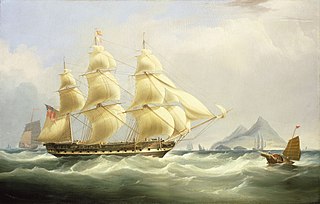Citations and references
Citations
References
- Hackman, Rowan (2001). Ships of the East India Company. Gravesend, Kent: World Ship Society. ISBN 0-905617-96-7.
- Low, Charles Rathbone (1877). History of the Indian Navy: (1613-1863). R. Bentley and son.
- Phipps, John (1840). A Collection of Papers Relative to Ship Building in India ...: Also a Register Comprehending All the Ships ... Built in India to the Present Time ... Scott.


